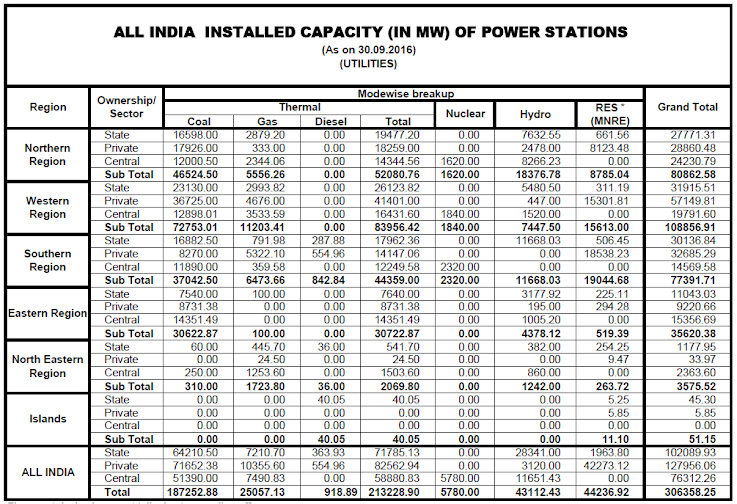The absence of funds for new power projects is an area of big concern and should be dealt
with seriously, according to a report. "A big concern today is a lack of financing available for new projects. The 13th plan (2017-22) requires Rs 1.27 lakh crore of private sector equity and the project pipeline looks weak, and if we don't correct the situation immediately, we will be back into a cycle of high deficits," consultancy firm KPMG said in a report.
There is a strong imperative to bring in strategic and financial investors, it said. The lack of funds and the poor pipeline are due to the current stalemate on various projects. Power projects face delays in land acquisition and environmental approvals and issues related to allocation of coal and passing
on costs of importing the fuel.
"Over 33,000 MW of projects are operating below 60 per cent plant load factor, mainly due to fuel issues," according to the report "This could pose a risk to over Rs 1 lakh crore of bank loans, which could turn into NPAs (non-performing assets)."
Delays in environment and forest approvals are taking a huge toll on projects. Clearances are pending for about 1,03,000 MW of power projects and 726 million tons per annum of mining capacity, it said.
Each day of delay for 100 million tons per annum of coal production costs the nation Rs 42 crore and USD 17 million in foreign exchange due to imports, according to the report. KPMG also said that there is need to rope in global participation in underground coal mining, which is currently less than 10 per cent of India's coal production.
"Bring in international participation in underground mining and operational excellence initiatives in mining companies," the report.Underground mining needs to be given a fillip as it is needed for long-term coal security, it said.
with seriously, according to a report. "A big concern today is a lack of financing available for new projects. The 13th plan (2017-22) requires Rs 1.27 lakh crore of private sector equity and the project pipeline looks weak, and if we don't correct the situation immediately, we will be back into a cycle of high deficits," consultancy firm KPMG said in a report.
There is a strong imperative to bring in strategic and financial investors, it said. The lack of funds and the poor pipeline are due to the current stalemate on various projects. Power projects face delays in land acquisition and environmental approvals and issues related to allocation of coal and passing
on costs of importing the fuel.
"Over 33,000 MW of projects are operating below 60 per cent plant load factor, mainly due to fuel issues," according to the report "This could pose a risk to over Rs 1 lakh crore of bank loans, which could turn into NPAs (non-performing assets)."
Delays in environment and forest approvals are taking a huge toll on projects. Clearances are pending for about 1,03,000 MW of power projects and 726 million tons per annum of mining capacity, it said.
Each day of delay for 100 million tons per annum of coal production costs the nation Rs 42 crore and USD 17 million in foreign exchange due to imports, according to the report. KPMG also said that there is need to rope in global participation in underground coal mining, which is currently less than 10 per cent of India's coal production.
"Bring in international participation in underground mining and operational excellence initiatives in mining companies," the report.Underground mining needs to be given a fillip as it is needed for long-term coal security, it said.


